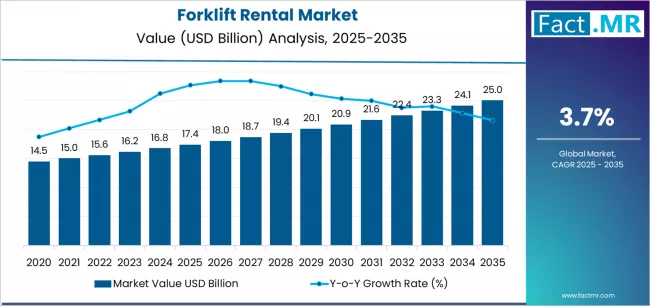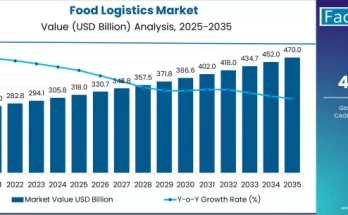In today’s fast-paced industrial and logistics landscape, the need for efficient material handling has never been more critical. Forklifts — essential for transporting, stacking, and organizing heavy loads — are at the heart of warehouse, manufacturing, and construction operations. However, the high capital investment and ongoing maintenance costs associated with owning forklifts have increasingly led businesses to explore forklift rental solutions.
The forklift rental market is growing as companies seek flexible, cost-effective ways to meet dynamic operational demands. By renting forklifts, businesses can gain access to a wide range of equipment types, advanced technologies, and professional support services — all without the financial burden of long-term ownership.
Market Overview
The forklift rental industry is a key segment of the broader material handling equipment market. Rental forklifts are used across multiple sectors, including warehousing, retail, logistics, manufacturing, and construction. They help streamline operations, improve warehouse efficiency, and ensure safe handling of materials.
Renting forklifts provides several advantages:
- Operational Flexibility:Businesses can scale their fleet up or down based on project or seasonal demands.
- Access to Advanced Technology:Rental fleets often include modern electric, diesel, and hybrid forklifts equipped with ergonomic designs and enhanced safety features.
- Maintenance-Free Operations:Rental agreements typically include maintenance and repair services, reducing downtime and operational risks.
The market has seen increased adoption of electric forklifts due to rising environmental awareness and stricter emission regulations. Electric forklifts offer lower operating costs, reduced noise, and improved indoor air quality, making them highly desirable for rental fleets.
Regional Insights
North America remains a leading region in forklift rentals, supported by well-established warehouse infrastructure, e-commerce growth, and robust logistics networks. Businesses in the United States and Canada increasingly prefer rentals for short-term projects, peak season operations, or expansion into new facilities.
In Europe, sustainability initiatives and stringent environmental regulations are driving the adoption of electric and low-emission forklifts in rental fleets. Countries with dense industrial activity and organized rental ecosystems are experiencing steady growth, as businesses look for energy-efficient material handling solutions.
The Asia-Pacific region is emerging as a key growth market, fueled by rapid industrialization, urban logistics expansion, and the rise of e-commerce. Countries like China, India, and Southeast Asian nations are seeing increased reliance on rental forklifts to support warehouse automation, supply chain optimization, and cost-efficient operations.
Meanwhile, Latin America, the Middle East, and Africa are witnessing gradual market development. Increasing investments in industrial infrastructure, retail expansion, and logistics hubs are driving the demand for flexible and scalable forklift rental solutions.
Key Trends & Forecast
- Digitalization and Equipment Tracking
IoT-enabled forklifts and fleet management systems are helping rental providers monitor real-time performance, usage, and maintenance needs, improving reliability and operational efficiency. - Rise of Electric and Eco-Friendly Forklifts
Growing focus on sustainability and lower carbon footprints is pushing rental companies to integrate electric and hybrid forklifts, aligning with environmental standards and reducing energy costs. - Short-Term and Project-Based Rentals
Seasonal peaks, warehouse expansions, and short-term projects are driving demand for flexible rental durations, allowing businesses to optimize resource utilization. - Technological Advancements and Safety Features
Rental fleets now include forklifts equipped with automated controls, collision detection systems, ergonomic seating, and enhanced load management technologies, improving both safety and productivity. - Expansion of Digital Rental Platforms
Online booking systems and mobile applications are making it easier for businesses to compare rental options, schedule deliveries, and manage fleets efficiently, enhancing overall user convenience.
Applications & End-Use Outlook
The forklift rental market serves a diverse set of industries:
- Warehousing and Logistics:Forklifts are essential for handling pallets, loading and unloading trucks, and organizing inventory efficiently. Rentals provide temporary fleet scalability during peak seasons.
- Construction:Rental forklifts are used for transporting construction materials, supporting site operations, and assisting in equipment placement for large-scale projects.
- Manufacturing:Rental forklifts aid in production line operations, moving raw materials and finished goods efficiently between departments.
- Retail and E-commerce:With growing warehouse automation and rapid order fulfillment, rental forklifts support businesses in handling high-volume inventory safely and effectively.
- Ports and Shipping Terminals:Heavy-duty forklifts are rented for container handling, logistics operations, and cargo stacking, improving throughput in busy transport hubs.
The versatility of forklifts across industries ensures a consistent demand for rental services while allowing businesses to reduce capital expenditure and maintenance costs.
Competitive Landscape
The forklift rental market is highly competitive, with a mix of global rental service providers, regional companies, and digital platforms offering on-demand solutions. Leading players focus on fleet diversification, equipment reliability, and flexible rental packages to maintain market share.
Collaborations with manufacturers enable rental companies to provide the latest models equipped with advanced technologies and safety features. Service quality, customer support, and quick delivery are key differentiators in this market.
Digital adoption is transforming competition, with platforms offering online booking, real-time tracking, and usage analytics gaining a competitive edge. Additionally, sustainability-focused services, including low-emission and electric forklift rentals, are helping companies differentiate themselves in a rapidly evolving market.
Sustainability and Technological Advancements
Sustainability and innovation are shaping the forklift rental industry’s future. Electric and hybrid forklifts reduce emissions and energy consumption, aligning with environmental goals while ensuring efficient operations.
The integration of telematics and predictive maintenance tools enables rental providers to optimize fleet utilization, extend equipment life, and minimize operational risks. Advanced safety features, ergonomic designs, and automation technologies improve workplace safety and reduce operator fatigue, further enhancing the appeal of rental solutions.
As industrial operations increasingly prioritize efficiency, cost-effectiveness, and sustainability, forklift rental services are becoming a central part of modern material handling strategies.
Conclusion
The forklift rental market is transforming how businesses approach material handling and operational scalability. Renting forklifts offers cost savings, flexibility, access to modern technology, and reliable maintenance services — all essential in today’s dynamic industrial environment.
As demand for warehousing, logistics, and construction services grows, rental solutions will continue to play a pivotal role in ensuring efficiency, safety, and operational sustainability. By leveraging technology, sustainable equipment, and flexible service models, forklift rental providers are poised to support businesses in meeting evolving operational demands while minimizing capital investment.
Organizations adopting rental-based strategies are not only optimizing productivity but also contributing to a more flexible and sustainable industrial ecosystem — ensuring forklifts remain a backbone of modern material handling operations.
Browse Full Report – https://www.factmr.com/report/forklift-rental-market



